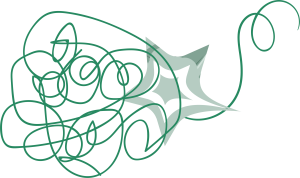Treatment Approach
Treatment Approach
I use an integrative approach that involves selecting techniques from various evidence-based therapies and modalities to best suit your concerns and achieve your goals.
The kind of treatment you select should be one that appeals to you and feels like a good fit for you. Remember, therapy requires collaboration and I’ll be happy to walk the journey with you!
Cognitive Behavioral Therapy (CBT) is a psychotherapeutic approach that focuses on changing patterns of thinking and behavior to improve emotional well-being. It aims to identify and challenge negative thoughts and beliefs, leading to more adaptive responses and healthier coping strategies.
Dialectical Behavior Therapy (DBT) is a type of psychotherapy that combines cognitive-behavioral techniques with mindfulness practices to help individuals regulate emotions, manage distress, and improve interpersonal relationships. It emphasizes acceptance and change, teaching skills such as mindfulness, emotion regulation, distress tolerance, and interpersonal










Emotionally Focused Therapy (EFT) is an evidence-based approach to couples therapy that focuses on identifying and restructuring emotional responses within relationships. It aims to create secure attachment bonds by helping partners express vulnerable emotions and communicate their needs effectively.










Attachment therapy focuses on exploring and addressing attachment patterns and dynamics that influence relationships, emotions, and behaviors. By examining early attachment experiences and working to develop secure attachment bonds, individuals can enhance their interpersonal connections and emotional well-being.










The Gottman Method is a research-based approach to couples therapy, focusing on strengthening relationships by improving communication, resolving conflicts, and fostering intimacy. It emphasizes the assessment of relationship dynamics through observation and uses interventions tailored to the unique needs of each couple to promote long-lasting relationship satisfaction.










Psychodynamic Therapy is an approach to psychotherapy that explores how unconscious thoughts and past experiences influence current behavior, emotions, and relationships. It aims to increase self-awareness and insight into underlying conflicts and patterns, facilitating personal growth and emotional healing.










Person-centered therapy is a humanistic approach that emphasizes the therapist’s unconditional positive regard, empathy, and genuineness to facilitate clients’ self-discovery and personal growth. It focuses on creating a supportive and nonjudgmental therapeutic environment where clients can explore their feelings, values, and experiences, leading to increased self-awareness and self-acceptance.










Internal Family Systems (IFS) therapy is a type of psychotherapy that explores and integrates various parts of the self, each representing different emotions, beliefs, and experiences. It aims to foster internal harmony and healing by helping individuals understand and relate to these inner parts with compassion and curiosity, leading to greater self-awareness and emotional resilience.










Solution-Focused Therapy is a goal-oriented approach that focuses on identifying and amplifying clients’ strengths and resources to facilitate positive change. It emphasizes exploring solutions rather than dwelling on problems, helping clients set achievable goals and develop practical strategies to achieve them.










Experiential therapy is an approach that emphasizes engaging in activities or experiences to explore emotions, behaviors, and relationships in a therapeutic setting. Through techniques such as role-playing, art, movement, or other expressive modalities, clients can gain insight, process emotions, and foster personal growth in a hands-on and interactive way.












